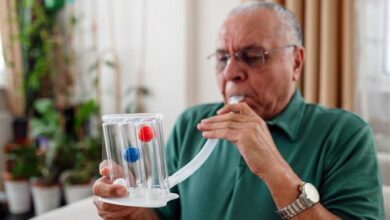Redefining Sleep Health: Yogic Practices Based on Evidence to Fight Insomnia
A vital element of general health and wellbeing is sleep. On the other hand, one-third of individuals globally suffer from sleeplessness. A decrease in mental health is often indicated by insomnia, which may also result in elevated stress and anxiety, a worsened quality of life, cognitive deficits, etc. It is essential to investigate evidence-based yoga practices that provide a systematic and comprehensive approach to treating insomnia on this World Sleep Day.

The pandemic of insomnia: The most prevalent medical condition connected to sleep is insomnia. 30% to 50% of individuals struggle with sleep issues each year, with one-third of them often having difficulty getting to sleep, staying asleep, or having poor-quality sleep. The cost to society is high and includes increased medical expenses, decreased productivity, and detrimental impacts on both physical and mental health.
Present State of Treatment:
Though they have shown efficacy, traditional therapies such as cognitive behavioral therapy for insomnia (CBT-I) have drawbacks, such as the need for skilled practitioners and a delayed therapeutic response. Drug treatments, which are often selected because they are quick fixes, might have negative side effects and result in significant financial costs. Novel, affordable, and readily accessible therapies that don’t need in-person interaction are desperately needed right now.
Beyond Asanas: Yogic activities provide a complete and low-risk alternative to traditional yoga. They go beyond the physical postures associated with yoga. Although there isn’t enough proof, complementary, mind-body, and alternative treatments seem promising. The parasympathetic nervous system is activated by deep breathing practices like pranayama, which promote relaxation and lower stress hormones. A fundamental component of yoga, meditation also improves the quality of sleep by lowering racing thoughts and relaxing the mind. Together, non-pharmaceutical therapies improve sleep hygiene and provide a comprehensive, empirically supported method of treating insomnia.
Impact of Yoga Practices on Physiology: By using meditation and yoga methods, yoga practices have a positive effect on the body’s production of catecholamines, or adrenaline and norepinephrine. Furthermore, melatonin, a hormone that is essential for controlling sleep, circadian rhythm, and the body’s internal clock, is activated by yoga and meditation. These habits also have a beneficial effect on melatonin, increasing its activity and promoting better sleep. A comprehensive approach to well-being is also provided by incorporating yoga practices into daily life, which recognizes their significance in enhancing general health.
Customizing Yoga Practices for Sleep Health: Adapting yoga poses to a person’s requirements and preferences enables them to integrate research-backed methods into their everyday lives. Promoting the incorporation of holistic yoga interventions into traditional insomnia treatments may support the development of a customized and long-lasting strategy for sleep health.
It is vital to integrate a range of relaxation methods in order to maximise the wellness of your sleep. Stress may be reduced by practicing relaxation techniques, that open up the neurophysiological and metabolic rest that is essential for body and mind renewal. Using breathwork and yoga-based deepening methods promotes emotional and cognitive processing in addition to physical relaxation, which helps people wind down before bed. Incorporating various forms of meditation into one’s daily practice may also help cultivate a calmer, more peaceful state of consciousness that improves sleep quality. We create opportunities for a paradigm shift in the fight against sleeplessness by acknowledging yoga as a lifestyle for comprehensive well-being.







